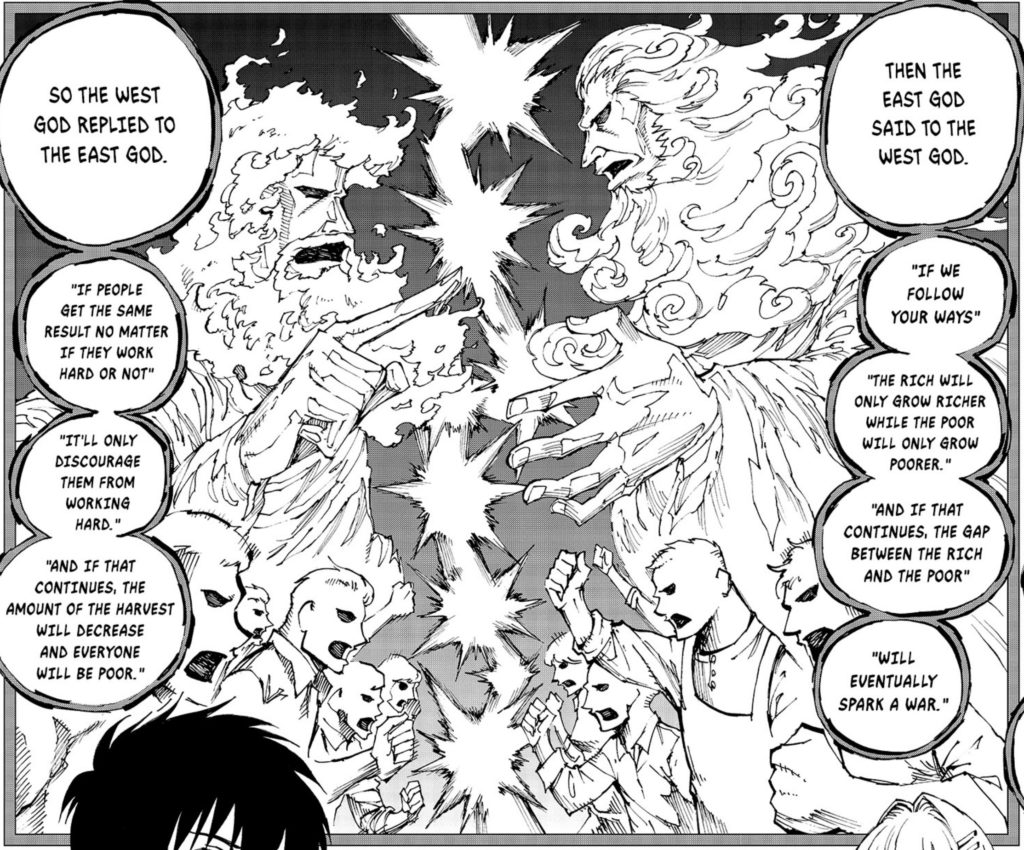
As many of you know, I am a fan of manga from the Far East countries. It is always interesting to read stories written from a different cultural and religious viewpoint. As these are manga, they are not trying to win converts nor make philosophical arguments. Rather, they are trying to present a readable story that will be popular. After all, like our comic books, they wish to make money. As a result, what they present most often tends to fit within the worldview of their region.
Those regions have a cultural religious background of polytheism, and of gods and spirits that are not necessarily all-powerful and all-knowing. They also, like old Scotland, Wales, Spain, etc., have many cultural tales about gods, spirits, and their actions. Latin-Americans have the chupacabra, the settlers of northeast USA had the headless horseman, the Welsh have the Dormarch and their leader Gwynn ap Nudd, and so on. Generally most manga, like many modern super-hero, fantasy, romance, etc., tales, take aspects of those tales, expand on them, and try to make a story that is readable to modern Asian-Pacific citizens.
In the process of modernizing those tales, sometimes the mangaka (manga-writer) will write a panel that clearly and succinctly summarizes some modern argument or aspect of our globalized society. The comic above is one classic example. Look at the arguments between both sides, and their gods, and see how well the mangaka’s summary reflects some of the current economic arguments taking place within our country. Within about 100 words, the summary well catches the spirit and heat between the two sides, who seem doomed to duel without a solution, since gods are not known for easily changing their minds and neither are their believers.
Now, look closely again at the panel above. Notice that neither position is moderate. Both gods are arguing extreme positions that fully function only if a pure economic system is in place. Neither god considers the possibility that a hybrid system that is somewhere between their two stances could actually deal with the challenges that each god wields against the other god. Neither god can see any fallacy within their system of thought or of economic practice despite the fact that the opposite god is directly pointing out the fallacy. But, since gods tend to be extremists, neither is capable of considering any other notion than their own nor of considering the possibility of a divine mistake.
Within the manga, the panel is used as a cautionary tale. This is because, as a result of the unwillingness of the gods to compromise or find a hybrid solution with sufficient safeguards to prevent the problems that each god sees, no result was ever found and that world ended up semi-destroyed. The extremism of both sides led to war, poverty, death, and famine, the Four Horsemen of the Apocalypse.
It might be well for us to heed the warning of that mangaka working out of southeast Asia and consider whether there might be ways for us to reach our own compromises in this country. Otherwise … well … otherwise it would be sad if we were the country that helps bring in the Apocalypse by damaging beyond repair the global economy.



Leave a Reply